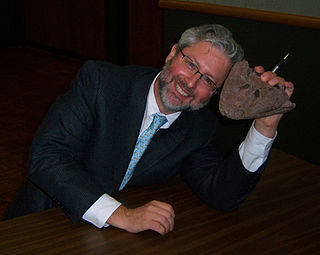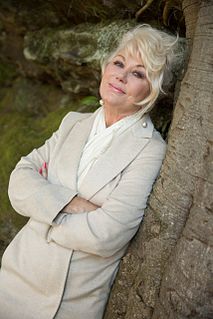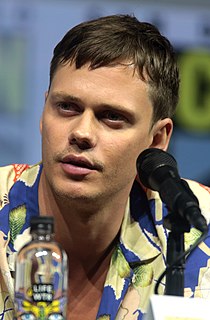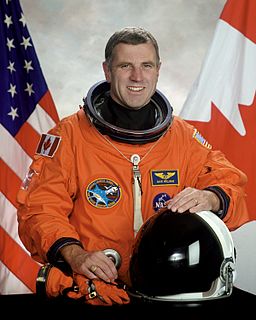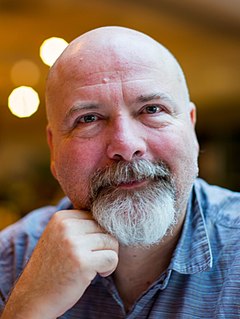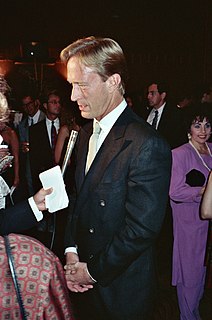A Quote by Neil Shubin
Take the entire 4.5-billion-year history of the earth and scale it down to a single year, with January 1 being the origin of the earth and midnight on December 31 being the present. Until June, the only organisms were single-celled microbes, such as algae, bacteria, and amoebae. The first animal with a head did not appear until October. The first human appears on December 31. We, like all the animals and plants that have ever lived, are recent crashers at the party of life on earth.
Related Quotes
The cosmic calendar compresses the local history of the universe into a single year. If the universe began on January 1st it was not until May that the Milky Way formed. Other planetary systems may have appeared in June, July and August, but our Sun and Earth not until mid-September. Life arose soon after. We humans appear on the cosmic calendar so recently that our recorded history occupies only the last few seconds of the last minute of December 31st.
If the age of the Earth were a calendar year and today were a breath before midnight on New Year's Eve, we showed up a scant fifteen minutes ago, and all of recorded history has blinked by in the last sixty seconds. Luckily for us, our planet-mates--the fantastic meshwork of plants, animals, and microbes--have been patiently perfecting their wares since March, an incredible 3.8 billion years since the first bacteria. ...After 3.8 billion years of research and development, failures are fossils, and what surrounds us is the secret to survival.
If you represent the Earth's lifetime by a single year, say from January when it was made to December, the 21st-century would be a quarter of a second in June - a tiny fraction of the year. But even in this concertinaed cosmic perspective, our century is very, very special: the first when humans can change themselves and their home planet.
A sound Physics of the Earth should include all the primary considerations of the earth's atmosphere, of the characteristics and continual changes of the earth's external crust, and finally of the origin and development of living organisms. These considerations naturally divide the physics of the earth into three essential parts, the first being a theory of the atmosphere, or Meteorology, the second, a theory of the earth's external crust, or Hydrogeology, and the third, a theory of living organisms, or Biology.
I think December has always been the most haunted month, from the gothic-narrative point of view - a lot of Edgar Allan Poe stories are set in December. It's the last month of the year, and it's supposed to be sort of this mystical, spiritual month. And being Swedish, December is also the darkest month out of the year.
On my second space walk, I was riding the Canadarm, heading down toward the payload bay of the space shuttle, and I could see the space shuttle highlighted against the Earth in the background, and there was this black, infinite, hostile void of space. I remember looking down at the Earth and thinking, "Beneath me is a 4½-billion-year-old planet, upon which the entire history of the human species has taken place." That was an incredibly humbling moment, and I had a bit of an epiphany.
In the beginning, there were bacteria.... [A] nearly universal assumption is that all subsequent life descended from the original life form through a continuous chain of ancestor-descendant pairs. This assumption looks good because all living organisms share biochemical traits. It is conceivable, of course, that life originated more than once on the early earth but that all except one life form died out early, leaving a single lineage as the ancestor of life as we know it. If this did happen, it was the first important species extinction.
